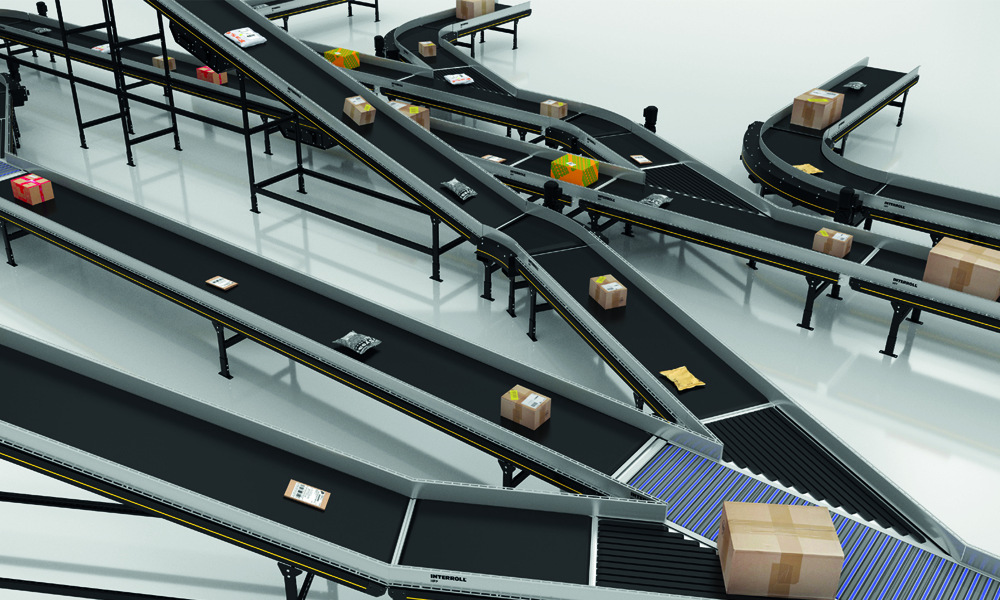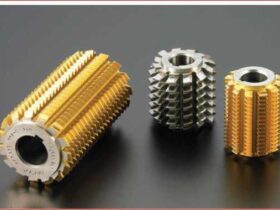Conveyor belt systems are simply an indispensable operational asset in various industries. Conveyor belts play an integral role in streamlining operations and improving productivity. There are different types of conveyor belts, and some common ones are flatbed conveyors and Interroll modular belts. Each of these belt systems has its unique features and benefits which will be discussed in this article.
This article explores the popular types of conveyor belts available, their unique features, and what companies stand to benefit from them. You’ll also find tips on choosing the best conveyor belt manufacturers to create customized conveyor system solutions for you.
1. Flat Bed Conveyors
Key Features
- Simple and customizable design
- Suitable for transporting a wide variety of goods
- Reliable and easy to maintain
Flatbed conveyors are extremely popular and one of the most commonly used types of belt conveyors in industries globally. These systems are known for their simple design which consists of a continuous flatbed moving along a powered pulley, allowing for efficient movement of products. Flatbed conveyors are also versatile and can be configured by Conveyor Belt Manufacturers to operate in straight lines, curved paths, or even more complex network layouts.
These conveyors can handle a variety of goods of different sizes and shapes, and even loose goods. Compared to other conveyors, flat bed conveyors due to their simple design are much easier to clean, inspect, and service if need be.
Besides being easy to maintain, flatbed conveyors are also very reliable, making them a convenient choice for businesses in several industries including eCommerce, manufacturing, food processing, and more.
2. Roller Bed Conveyors
Key Features
- Ideal for heavy-duty applications
- Minimizes friction for smooth movement of goods
- Commonly used in automotive, warehousing, and mining industries
These types of belt conveyors have special rollers along the conveyor frame that support the belt. These conveyors can be used for transporting heavy-duty items and irregularly shaped goods.
These conveyors are preferred for their ability to reduce friction and promote smooth transportation. These conveyor systems are essential in industries that require robust and efficient material handling like the mining industry.
3. Modular Belt Conveyors
Key Features
- Versatile and customizable conveyor solution
- Easy replacement of damaged sections
- Navigate angles and curves efficiently
Modular belt conveyors are an ideal choice if you require a customizable solution to suit specific requirements. The basic design of these conveyors consists of a continuous belt surface formed by interlocking plastic modules. You can find high-quality modular belt conveyors produced by Interroll and other leading manufacturers. These conveyors are ideal for packaged goods, automotive components, pharmaceutical goods, and many more.
4. Wire Mesh Belt Conveyors
Key Features
- Excellent airflow and drainage
- Suitable for processes involving moisture like drying and cooling
- Commonly used in food processing, automotive, and electronics industries
As the name suggests, these conveyors have a mesh-like continuous belt. The belt is designed by closely interlocking metal wires to create a breathable and porous surface for transporting items. This functional design is ideal for transporting items involving drying, washing, or cooling. The design prevents sticking and facilitates efficient air flow and heat transfer making it suitable for businesses in the food processing and automotive industries.
5. Incline/Decline Belt Conveyors
Key Features
- Supports efficient vertical transportation
- Prevent product slipping
- Commonly used in agriculture, mining, and construction industries
These belt conveyors are specifically designed to transport goods through upward or downward slopes. The belts in these conveyors are designed with cleats or similar components to transport items through inclines or declines safely.
These conveyors play a tremendous role in efficient vertical transportation of goods thus eliminating the need for manual intervention. These specialized systems are valuable in industries like construction, mining, and agriculture.
Factors To Consider When Choosing A Conveyor Belt
It’s crucial to make some considerations before opting for a conveyor belt system. You want to first ensure that a conveyor belt is what your facility needs, after which you must choose the ideal belt conveyor to suit your needs.
You should consider the weight, shape, and fragility of the goods you’re transporting to avoid investing in systems that can damage your products. Depending on the nature of your goods and products, you can choose from the available types of conveyor systems that would be ideal for you. You can also contact the leading conveyor belt manufacturers to create a customized conveyor solution for your needs.












Leave a Reply